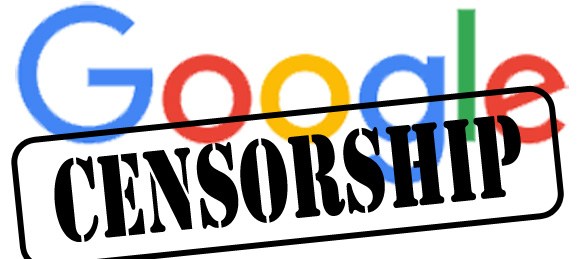Google Bans Pro-Life Ads Ahead of Ireland Vote to Legalize Abortion

Karl Marx Unleashed a Blood-Thirsty Dragon Upon the World That Can Be Defeated by the Rosary
May 10, 2018
‘Fifty Shades of Catholicism’: Catholics Castigate ‘Tasteless, Indecent, Blasphemous’ Met Gala
May 10, 2018
By Micaiah Bilger, LifeNews, May 9, 2018
DUBLIN, IRELAND – As the vote on abortion quickly approaches in Ireland, another online media giant has decided to ban all ads related to the referendum.
Google no longer will run ads related to the Irish abortion vote on its search site or YouTube, according to the Irish Independent. Google said the policies will apply to ads from both sides of the abortion debate; but when LifeNews searched Google for ads just prior to its new policy taking effect, it found only one ad – a pro-life ad – when it searched “Ireland abortion referendum” and “Ireland 8th amendment” The ad is for the Love Both campaign, a coalition of Irish pro-life groups working to defend unborn babies’ rights in the country.
Earlier this week, Facebook announced similar plans, though with a more limited scope. Only abortion-related ads from Irish sources will be allowed ahead of the vote. Both claimed they are concerned about foreign groups influencing the election through ads on their platforms.
“Following our update around election integrity efforts globally, we have decided to pause all ads related to the Irish referendum on the Eighth Amendment,” a Google spokesperson said.
Green Party Leader Eamon Ryan TD told The Irish Times the new policies will protect the integrity of the referendum.
SIGN THE PETITION! Attention Facebook, Twitter, Google and YouTube: Stop Censoring Pro-Lifers
“Following on from Facebook’s announcement yesterday, this announcement by Google is further welcome news,” he said. “This is not about which side of the referendum you’re on, Yes or No. It is about protecting the integrity of our referendum and political system.”
However, the announcements may be concerning to pro-lifers, given the influence and liberal bias of the two top media platforms in the world. Facebook and Google have strong biases against the pro-life argument. Their platforms have censored and blocked pro-life information while allowing pro-abortion activists to post lies and deceptions openly.
Their timing raises questions about bias. It is only two weeks until the election, so why did the two companies wait until now to roll out these new policies? Does it have anything to do with several new polls showing the pro-life side is gaining ground? And they appear to only target the pro-life side since no pro-abortion ads are currently running.
Abortion activists praised Google’s decision.
Ailbhe Smyth, co-director of the Together for Yes campaign — a group committed to repealing the Eighth Amendment — praised Google’s ban on referendum-related advertising, telling the Irish Times that it “creates a level playing field between all sides, specifically in relation to YouTube and Google searches.”




